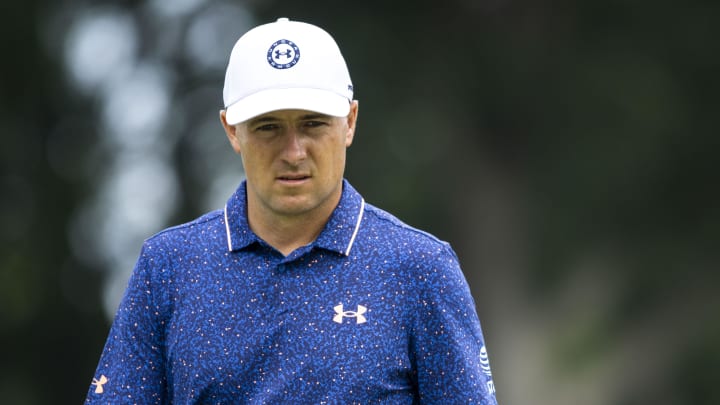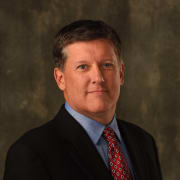Jordan Spieth Hints at Offseason Wrist Surgery: ‘Going to Have to Do Something’

A wrist issue that has bothered Jordan Spieth for more than a year is something he admitted Tuesday will likely needed to be addressed after the PGA Tour season concludes.
Spieth, 31, who is playing in this week’s Wyndham Championship, said he doesn’t have any pain when he swings the club but is concerned the injury is affecting him anyway. His stats for approach to the green are among the worst of his career.
“It's been a frustrating year because it's been maybe my best driving year ever, and then the clubs that I make the most impact into the ground with, which normally are my bread and butter, have been pretty off,” Spieth told reporters in Greensboro, N.C., in advance of the tournament. “It's not hurting, but subconsciously it's hard not to look at the numbers and think this isn't a coincidence.
“I've been taking trips out as well as being in contact with a lot of doctors, getting it scanned again and trying to figure out what the next move is. Probably going to have to do something about it this offseason.”
Spieth’s ECU (extensor carpi ulnaris), a tendon in his left wrist, regularly pops out. It started last spring during the Wells Fargo Championship but Spieth managed it mostly for the rest of the year before it flared up again in the fall.
After a fast start to this year, Spieth has mostly struggled, with no top-10 finishes in his last 17 events. He did not contend in any of the majors.
At 63rd in the FedEx Cup standings, he is safe for the events that begin next week for the top 70 but has some work to do to get to the BMW Championship and assure that he is top 50—which would get him in all the signature events next year.
“I'm going to pretend nothing's happening, fully trust it given that I'll be able to get it fixed, and I know there's a lot of golfers that have had similar situations and come back better than ever,” he said. “I like to think hopefully I have 10 to 15 years of prime and some of my best golf left, so I'll be optimistic about the process.
“But I'm not quite sure exactly what I'll do and where I'll do it, but unfortunately something kind of has to get done. And I've never experienced anything like this before. Just trying to take my time making sure things are done right at the right time.”
Spieth said what is strange about the condition is that he is generally pain-free—until the tendon pops out.
“I'm not in any pain playing, that's what's confusing,” he said. “If I was, I wouldn't have played anymore. It's all off the golf course weird little things where my tendon will kind of pop out, sublux or dislocate out of the groove and then I've got to get it back in or else I wouldn't be able to grip a club.
“If it's a problem at all, I'm not withdrawing from an event. It's a very weird scenario and one that's been a little frustrating because I would have liked to have known this is the answer or this is the answer and just have to figure it out.”
Asked how long he’s been pain-free, Spieth said: “Well, the whole time. I mean, I’m pain-free until it subluxes and then I’m very much in pain until I get it back.”
Spieth said he believes it is not something that will heal on its own, nor is he doing any further damage.
“When I'm hitting balls I'm not thinking about it, I'm not worried about it, but I just don't know subconsciously, it's too tough to measure if or if it's not making a difference,” he said. “I have no pain excuses or there's no reason to play if you feel like you're going to play through pain or not be at your best.”
